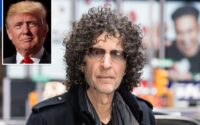Senate book-ban hearing gets NSFW with sexually graphic reading
A relatively routine Senate Judiciary Committee hearing turned R-rated Tuesday — when Sen. John Kennedy read from a sexually graphic children’s book to drive home growing calls from parents to have age-appropriate literature in schools and libraries.
The 71-year-old Republican from Louisiana recited sections from LGBTQ young adult books, including “All Boys Aren’t Blue” and “Gender Queer,” and grilled witnesses who have pushed state legislation and initiatives to block parents from having a say in what their child can access.
“I put some lube on and got him on his knees. And I began to slide into him from behind,” Kennedy read from “All Boys Aren’t Blue,” a coming-of-age book for young adults with a queer black protagonist.
“He asked me to turn over while he slipped a condom on himself.”


The NSFW reading came during a Senate Judiciary Committee hearing titled “Book Bans: Examining How Censorship Limits Liberty and Literature,” which discussed efforts to define what books should be publicly available.
“I want to try to understand what you’re asking us to do. Let’s take two books that have been much discussed,” Kennedy told Illinois Secretary of State Alexi Giannoulias, who earlier this year backed a bill to withhold state funding from libraries that don’t follow American Library of Association guidelines.
The guidelines make no mention of sexually explicit content and say books “should not be proscribed or removed because of partisan or doctrinal disapproval.” The Illinois bill, which was signed into law by Gov. J.B. Pritzker in June, also does not address potentially lewd material.

Kennedy went on to read excerpts from “Gender Queer,” a 2019 graphic novel about gender identity written for teenagers that has since been pulled from shelves at several public school libraries.
“I got a new strap-on harness today. I can’t wait to put it on,” he read, in part.
“Mr. Secretary, what are you asking us to do? Are you suggesting that only librarians should decide whether the two books that I just referenced should be available to kids?” Kennedy asked Giannoulias.

“With all due respect, Senator, the words you spoke are disturbing, especially coming out of your mouth, it’s very disturbing,” Giannoulias responded. “But I would also tell you that we’re not advocating for kids to read porn.
“We are advocating for parents, random parents, not to have the ability under the guise of keeping kids safe to try and challenge the worldview of every single manner on these issues,” Giannoulias said.
“When individual parents are allowed to make a decision of where that line is and ‘To Kill a Mockingbird,’ which involves a rape scene, should that book be pulled from our libraries? I think it becomes a slippery slope.”

Kennedy agreed with witnesses that “censorship is bad” but said the books he read from were subject to different scrutiny.
“You heard the books we’re talking about. We’re not talking about ‘Catcher in the Rye,’” the Louisiana Republican said. “So tell me what you want, who gets to decide? And all I’ve heard is the librarians. And parents have nothing to do with it. And if that’s your response, what planet did you just parachute in from?”
Giannoulias responded: “Senator, with all due respect, parents absolutely have a say. My parents were immigrants, came to this country. We never checked out books without our parents seeing what books were reading. They encouraged us to read books.”

Members on both sides of the aisle agreed that some books contained passages too sexually graphic for young readers but failed to define what authority either the state or parents should be able to wield in response.
“These school districts are acting in response to legitimate parental concerns. They should be removing these,” Sen. Mike Lee (R-Utah) said. “Shame on them if they don’t and shame on those who want to groom children sexually.”
Judiciary Chairman Dick Durbin (D-Ill.) countered that witnesses were not “advocating for sexually explicit content to be available in an elementary school library or in [the] children’s section of the library.”
“That’s a distraction from the real challenge,” he said. “I understand and respect that parents may choose to limit what their children read, especially at younger ages. My wife and I did. Others do, too. But no parent should have the right to tell another parent’s child what they can and cannot read in school or at home. Every student deserves access to books that reflect their experiences and help them better understand who they are.”


